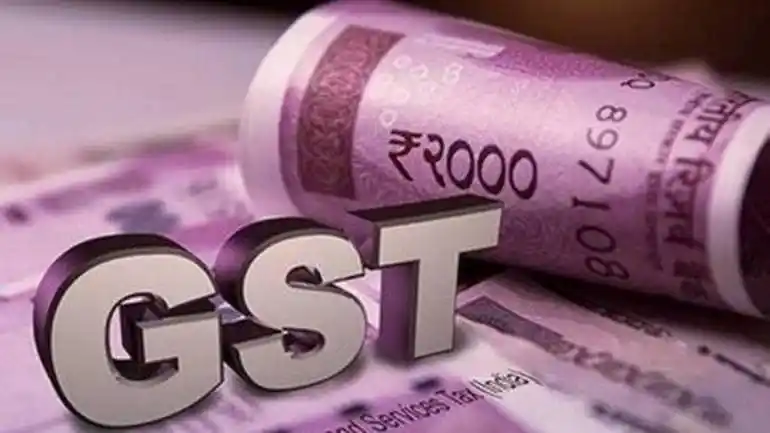GST on retention money
A. Introduction
In cases of high value building contracts or employment contracts where the duration is longer than a year, the idea of retention money is rather common.
The receiver often withholds the retention money at a certain
proportion in accordance with the terms of the contract or agreement from the
contractor's periodic bills, and the recipient then pays the remaining balance
after deducting the retention money and TDS. This page will cover a variety of
GST on retention money-related topics.
Retention amount clauses are typically included in contracts to protect the recipient from any risk of the contractor failing to complete the work on time or only partially. Accordingly, the contractor receives the retention amount deducted by the recipient once the work is completed to its satisfaction or upon receipt of a completion certificate from the relevant authorities.
B. GST on retention money
Even if it seems like this point is irrelevant given that GST is applied to the value of taxable supplies determined in accordance with Section 15 of the CGST Act, 2017, and as retention money is a portion of this value, it is obviously subject to GST.
However, the suppliers' end of the question in this regard is regarding
the amount of billing and GST payment thereupon. The following illustration
helps to clarify this problem.
Illustration 1:
A Ltd is a work contractor as per terms of contract is required to issue
bill for work done on monthly basis to B Ltd the recipient of supply. As per
the contract, retention money @ 15% is prescribed. Suppose work executed during
the month of April,2022 was of Rs 6,00,000/- and rate of GST is 18%. Now A Ltd
is faced with two options:
1. Issue invoice of Rs
6,00,000 plus GST.
2. Issue invoice of Rs
5,10,000 plus GST, after reducing the retention amount as per contract and
issue invoice for such retention amount upon completion of work.
In this regard there should be no doubt that invoice in instant case A
Ltd has to raise the invoice for the full value of Rs 6 lakh plus GST and tax
of Rs 1,08,000/- thereon will be required to be deposited by the supplier as
time of supply as per provisions of Section 12 (goods) or Section 13 (services)
is attracted upon issuance of invoice.
To conclude the above case, Instead of reducing the bill
amount at the supplier level, the recipient must instead issue an invoice for
the full value of the supply made and deduct any retention money from it when
paying the supplier.
C. GST on release of retention money
When the recipient releases the
retention money to the supplier once the work has been satisfactorily
completed, there will be no GST implications because the supplier has already
charged and paid the GST on the full value of the taxable supply at the time of
invoice issue.
D. Whether input tax credit (ITC) is to be reversed by the recipient equivalent to the GST component of retention money
This is the key issue which the recipients are grappling with. The reason for emerging of ITC issue due to retaining of amount by recipient out of suppliers bill, is second proviso to Section 16(2) of the CGST Act, 2017 which reads as under:
“Provided further that where a recipient fails to pay to the supplier of goods or services or both , other than the supplies on which tax is payable on reverse charge basis, the amount towards the value of supply along with tax payable thereon within a period of 180 days from the date of issue of invoice by the supplier , an amount equal to the input tax credit availed by the recipient shall be added to his output tax liability, along with interest thereon, in such manner as may be prescribed.”
For understanding the implication of the above proviso, let us take the Illustration 1 as discussed above, further ahead for ease of understanding.
Illustration 2:
A Ltd raises invoice of Rs 6 lakh plus GST @ 18% (Rs 1,08,000/-) i.e. total invoice value of Rs 7.08 lakh to B Ltd. B Ltd as per terms of the contract retains 15% of the bill amount i.e. Rs 1,06,200/- and releases the balance (after TDS) to A Ltd.
In the above case B Ltd must have taken ITC of GST amount as reflected in the invoice i.e. Rs 1,08,000/- upon receipt of invoice subject to fulfillment of other conditions. It may also be noted that A Ltd must also have paid this tax with the Government through GSTR 3B and also filed its GSTR 1 giving details of the invoice and thus this credit would be reflected in GSTR 2A. In such a situation there should absolutely be no restriction / impediment to avail such ITC if such inward supply is for business purpose / for taxable outward supply and same is not blocked under Section 17(5) of the CGST Act, 2017.
Given that the supplier has not received the whole amount of the invoice, i.e. Rs 1,06,200 (including GST of Rs 16,200), which has been withheld in accordance with the contract, there is a risk that the recipient could face an ITC reversal of Rs 16,200 under the second proviso of Section 16(2). Now, it must be decided if this threat truly exists or if it is only a figment of the imagination.
The terms of Section 16's second proviso determine how to respond to the question above (2). Before implementing the proviso, it is important to take into account the legislative intent of the government, which, legally speaking, lacks locus standi to impose such restrictions, particularly since it has its own tax.
Such a clause appears to be intended to shield the suppliers from the recipient's failure to make payment for the services rendered. In the event of non-payment, the supplier will be in double jeopardy because, in addition to not receiving any money for the services rendered, he has already paid the applicable GST from his own funds (upon the occurrence of the supply at the time the invoice was issued), and this money has not yet been received by the supplier. The aforementioned condition will put some pressure on recipients to pay the provider the entire amount plus tax within a 180-day window by way of ITC reversal.
In light of the aforementioned intention, "fails to pay" rather than "does not pay" is used in the proviso. It is clear that there is a significant difference between the two expressions since "fails to pay" relates to instances when an amount was owed per the terms of the contract but was not paid, but "does not pay" has a more general meaning and would cover non-payment for any reason.
As with retention money, the amount is subtracted from each invoice in accordance with the terms of the agreement made between the supplier and the recipient. According to the contract, this retention money will be required for payment upon completion of the work, hence there can be no failure to pay it as it is not yet due.
Accordingly, it appears that amount of retention money will not be covered within expression ‘fails to pay’ and thus said proviso will not be applicable. Consequently, there will be no need for credit reversal even if 180 days has been elapsed since invoice date.
However, the issue is debatable and Revenue may litigate on the issue.








Helping
ReplyDeleteAymus Digital offers expert Web Development and SEO Services in Pakistan, creating fast, responsive websites and improving search rankings to grow your business online. Web Development & SEO Services In Pakistan
ReplyDelete